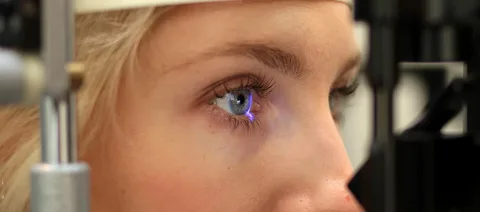Diabetic retinopathy is a condition that affects your vision strength when you have diabetes. You can minimize your risk of Bronx diabetic retinopathy by controlling your blood sugar levels to ensure your eyes are healthy. If the condition is left untreated, it can lead to complications like floating spots or extreme vision loss.
What is diabetic retinopathy?
High blood sugar levels affect the blood vessels in your body. When diabetes affects the blood vessels in your retina, the damage affects your eyesight and can lead to blindness. Although you might have diabetes under control, the fact that you have it increases your risk of getting diabetic retinopathy.
When there is a lot of pressure on your eye blood vessels, the blood can leak into the vitreous, a jelly-like fluid that fills your eye. In serious cases, the blood might replace the vitreous fluid, causing vision loss.
Symptoms of diabetic retinopathy
You can experience the following symptoms during the early stages of the condition:
- Blurry focus
- Dark areas in your vision
- Impaired color perception
- Fluctuating vision
- An increase in eye floaters
Dark areas in your vision can lead to vision loss if your condition is advanced.
Treatment options
Your specialist will provide you with a treatment plan depending on the severity of your condition. Initially, your doctor will offer tips to help you control and maintain healthy sugar levels. If that doesn’t work, they might opt for other treatments like surgery if your condition is advanced.
Controlling diabetes
When you have high blood sugar levels, you need to control them through diet and exercise. Your specialist can help you create a diet plan and exercise regimen to help you bring your sugar levels to a healthy level. Your diet should include foods that release sugars into your bloodstream steadily.
Laser treatments
You might need laser treatments to shrink the blood vessels in your retina and promote better vision. During the treatment, your specialist will numb your eyes using local anesthetic drops and widen your pupils using special eye drops. Then, your specialist will shine a laser into your eyes. The procedure is quick and can take about 30 minutes.
Vitrectomy procedure
Vitrectomy is a surgical procedure that treats a detached retina and removes the blood from the pressurized eye blood vessels. Your specialist can use the method to remove the vitreous and replace it with another solution.
Preventative measures
Although it can be difficult to prevent diabetic retinopathy when you have diabetes, you can control your diabetes by monitoring your blood sugar levels. As earlier stated, diabetes and exercise are very important in controlling blood sugar. Regular monitoring of your glucose levels can help you track the foods you eat and how they affect your sugar levels.
Your blood pressure and cholesterol should be fine to avoid complicating and affecting your vascular system. Lastly, monitor your vision and visit your specialist for treatment if you notice changes.
If you have diabetes and are experiencing vision problems, visit Bainbridge Eye Care for diabetic retinopathy treatment. The qualified eye specialist team will evaluate your eyes and diabetes status to offer the most suitable treatment plan. Call or schedule your appointment online today to improve your vision.











